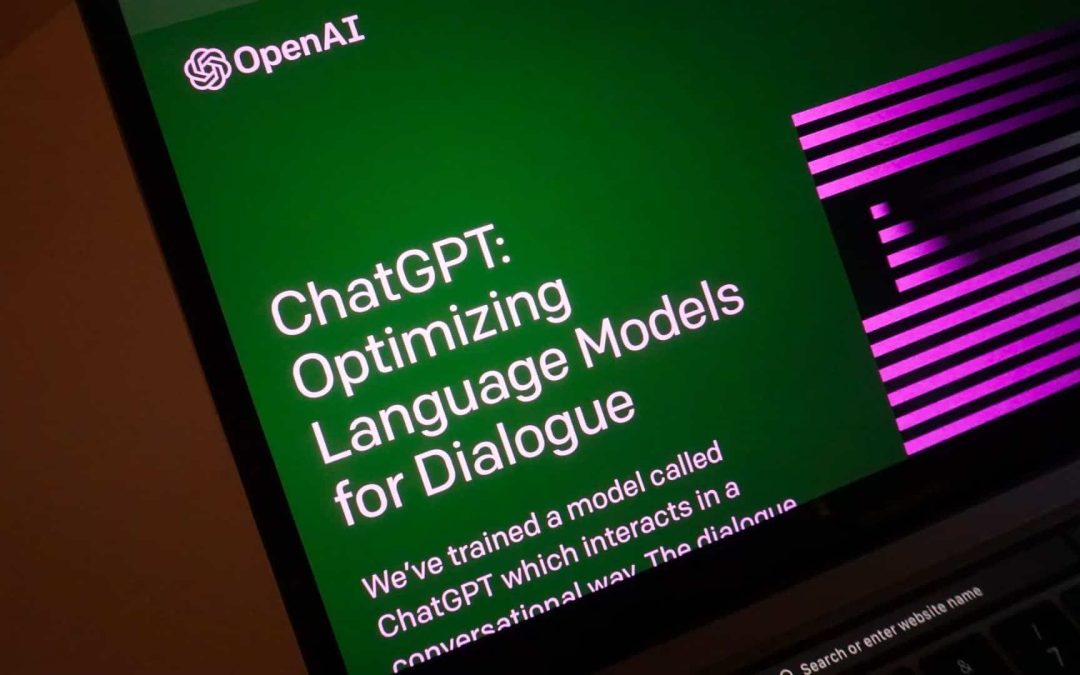Artificial intelligence (AI) has revolutionised various industries, and will continue to do so. One of the most impactful examples is ChatGPT, an AI language model developed by OpenAI. ChatGPT has been widely used for multiple applications, including content generation, data analysis, and customer support. However, with the increasing reliance on AI, concerns about the potential security risks associated with ChatGPT have been raised. We wanted to explore these cybersecurity risks to help keep you, your employees and your clients safe.
Data privacy and confidentiality
One of the most significant concerns surrounding ChatGPT is the potential for data privacy breaches. AI models like ChatGPT are trained on vast amounts of data, and while efforts are made to anonymise this data, there’s a risk of inadvertently exposing sensitive information. According to Malwarebytes, it’s possible that the AI could unintentionally generate content that includes private or sensitive information.
Organisations using ChatGPT should establish strict data handling policies and ensure their employees understand the potential risks associated with sharing sensitive information through the platform. Data minimisation, access control, and encryption are some measures that can be implemented to protect sensitive data.
Phishing attacks and social engineering
AI-generated content can be remarkably convincing, which raises concerns about the potential for ChatGPT to be exploited in phishing attacks and social engineering. Bleeping Computer suggests that ChatGPT’s ability to generate realistic content could make it easier for cybercriminals to create sophisticated phishing emails, impersonating trusted individuals, or craft persuasive social engineering attacks.
To mitigate these risks, companies should invest in employee training and raise awareness about phishing tactics and social engineering techniques. Implementing robust email filters and monitoring systems can also help detect and prevent potential attacks.
How else can we protect ourselves when using AI?
Collaboration between AI developers and cybersecurity experts
To address cybersecurity risks effectively, there needs to be a collaboration between AI developers and cybersecurity experts. By sharing knowledge and expertise, both parties can work together to identify potential vulnerabilities and develop strategies to mitigate risks.
Organisations should encourage cross-functional collaboration and invest in research and development to stay ahead of emerging threats. By fostering a culture of innovation and continuous improvement, organisations can develop more secure and resilient AI systems.
Regular security audits and updates
Like any technology, AI systems are susceptible to vulnerabilities and require regular maintenance to ensure they remain secure. Regular security audits and updates can help identify and fix potential weaknesses in the AI system, ensuring that it continues to function safely and effectively.
Organisations should establish routine security audits and develop a robust patch management strategy to address vulnerabilities as they arise. This can help minimise the risk of security breaches and maintain the trust of customers and stakeholders.
Proactive threat intelligence
Proactive threat intelligence is essential for staying ahead of potential cybersecurity risks associated with AI systems like ChatGPT. By monitoring emerging threats, organisations can develop strategies to mitigate risks and protect their systems and data.
Investing in threat intelligence platforms and collaborating with industry partners can help organisations stay informed about the evolving threat landscape. Sharing information and insights across the industry can also contribute to the development of best practices and collective defence strategies.
If you’re concerned about the security risks posed by ChatGPT or need help securing your IT infrastructure, contact Compex IT today. Our team of experts can help you mitigate risks and protect your business from cyber threats. Don’t wait until it’s too late; reach out to us now to learn how we can help.

